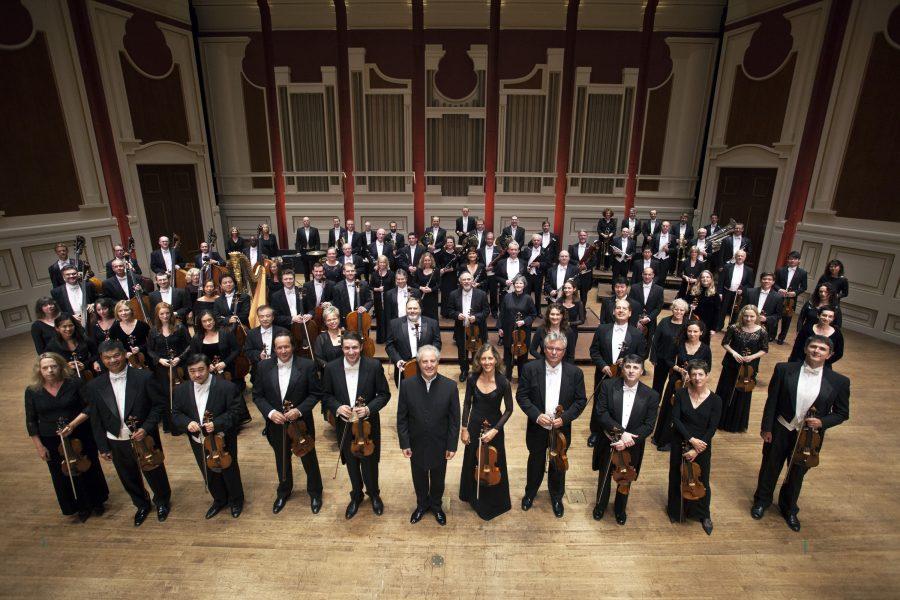The power behind PSO
Musicians of Pittsburgh Symphony Orchestra strike after failed contract negotiations
After months of negotiating a new three-year contract and varying views of the financial state of its management company, the musicians of the Pittsburgh Symphony Orchestra (PSO) went on strike.
With the previous contracts set to expire on Sept. 5, negotiations for new contracts began in February 2016. After a contract was not agreed upon, the previous contract was extended until Sept. 18, with negotiations taking place Sept. 13-18. Negotiations ended on Sept. 29, when the union representing the musicians rejected what the Pittsburgh Symphony Orchestra, Inc. (PSI) called the “last, best and final offer” on the PSO Blog.
This final offer from management included resolutions to solve financial issues the Symphony has reportedly faced in recent years. The contract that the PSO musicians rejected included a 15 percent salary concession—cutting the base salary from about $107,000 to $91,000—and attrition of three open positions in the ensemble. There was also a proposed change in retirement plans, with the rejected contract containing the motion to switch from a defined benefit plan to a defined contribution plan. According to the U.S. Department of Labor, while a defined benefit plan states the specific benefits one receives after retiring, a defined contribution plan doesn’t state benefits, but the employee and employer may contribute to retirement at a set rate.
According to the PSO Blog, the PSO will experience a $20.4 million deficit over the next five years. Debt, operating budget deficits and the loss of gifts and subsidies that supported the PSO during the previous contract are some of the reasons for these proposed contractual changes.
“Pittsburgh Symphony Orchestra musicians are exceptional artists, and deserve every dollar and every benefit we can afford to offer. At the same time, at this moment in the Pittsburgh Symphony’s history, we absolutely must dedicate ourselves to a course correction to ensure long-term sustainability for the orchestra,” PSO President and CEO Melia Tourangeau said.
The PSO musicians, however, believed that management overstated its financial problems. As part of a posting called “The ‘Real’ FAQ” on the PSO musicians’ website, operating revenue increased by 12.5 percent and endowment net assets by 11.4 percent between 2012 and 2015 while expenses increased by only 0.24 percent. Using this data, the musicians stated that “the claimed ‘dramatic downturn in revenue’ and ‘significant increase in expenses’ is a fabrication.”
As a result of the strike, management cancelled PSO concerts through Dec. 5. Despite not performing at Heinz Hall, the PSO musicians have performed free concerts in various locations around Pittsburgh, essentially replacing those cancelled by management.
“While negotiations continue between the management and the union and we are hopeful to reach an agreement sometime soon, it is unlikely that the organization will be able to turn around quickly enough to advertise and present these concerts successfully under the current circumstances,” PSO Director of Media Relations, Joyce DeFrancesco, said following the cancellations of concerts through Dec. 5.
On Nov. 23, the PSO musicians signed a contract proposed by PSI, ending the strike. The contract, which will be effective through Sept. 5, 2021, calls for a 10.5 percent salary cut, transition to a defined contribution plan and the unfulfillment of three open seats in the orchestra. Concerning the salary cut, the PSO musicians’ salaries will increase throughout the five years of the contract until the fifth year, in which the base salary will return to $107,000.
“I am very grateful that an agreement has finally been reached and want to thank the orchestra, management and board for all of their work during this difficult time. It was considerably painful to be separated from our great orchestra, the audience and the wonderful city of Pittsburgh. We will continue to maintain the high quality and I am looking forward to now making music for our loyal audiences in Heinz Hall and beyond,” Manfred Honeck, PSO music director, said.
According a press release from PSO, Honeck will conduct the PSO at Heinz Hall for two free performances on Dec. 2 and Dec. 4 “as a special ‘thank you’ to the community and to celebrate the orchestra’s return to the Heinz Hall stage.”



